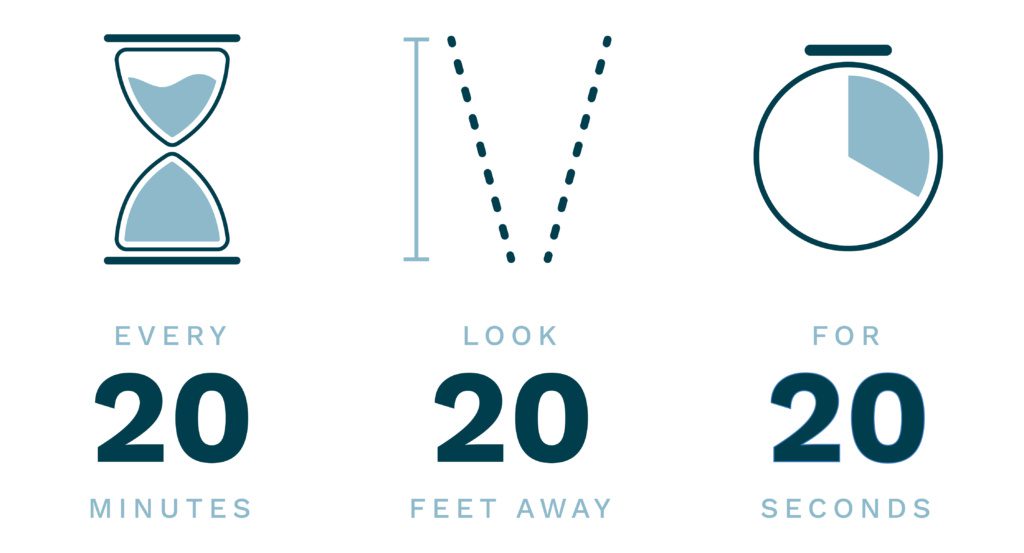Caring for your vision at home
March 20, 2020
This paid piece is sponsored by Vance Thompson Vision.
Over the past few weeks, many of us have seen our work environments change drastically because of the outbreak of COVID-19.
Those of us who are lucky enough to be able to work remotely have been busy assembling home offices out of thin air while navigating a new world of virtual communication. But among the concerns about teleconferencing and VPNs, it’s important also to remember to care for one of your most precious assets: your vision.
Working from home presents a host of new challenges and temptations that can strain your eyesight. Here are a few ways to help care for your eyes while you are stuck at home.
Find your light
Excessively bright light – both natural and artificial – is one of the major causes of eyestrain. When it comes to natural light, the best position for a computer is to the side of a window rather than directly in front of or behind it. If this isn’t possible, try controlling the amount of light with curtains or blinds. To minimize eyestrain from artificial light, seek out light sources that have soft white LED or incandescent bulbs instead of fluorescent ones.
Another important light source to consider is the screen itself. Ideally, your screen should be the same brightness as the room around it. To test this, open a web page with a primarily white background. If it looks like your screen is emitting light, it may be too bright. If it looks dull or grayish, it may be too dark. Many computers and mobile devices are now equipped with features that automatically adjust screen brightness and temperature based on your surroundings.
Assume the position
While it’s tempting to work from the sofa, poor posture also can contribute to eyestrain. Your chair should be the right height for your feet to rest comfortably on the floor.
Your computer screen should be positioned directly in your line of sight – not at angle – about 20 to 24 inches away from your eyes. To avoid neck tension and eyestrain, the center of the screen should ideally be 10 to 15 degrees below your eyes.
Don’t forget to exercise
Healthy eyes are easily able to switch their focus or accommodate between near and far vision. But prolonged periods of intense focus on near vision, such as looking at a computer screen, may cause your eyes to have difficulty focusing at a distance. This temporary condition, known as an accommodative spasm, can be reduced by practicing simple eye exercises such as the “20-20-20 Rule” that recommends pausing to look at an object at least 20 feet away for 20 seconds every 20 minutes. This allows eye muscles to relax and reduce fatigue.
Another side effect of computer use can be dry eye. Studies have shown that people blink about one-third less while working at a computer than they do normally. Every 20 minutes, try blinking your eyes very slowly – like you are falling asleep – 10 times to keep your eyes from drying out.
Care for your glasses and contacts
Many questions have arisen recently about whether it is safe to continue wearing contact lenses. As with any contagious disease, wearing contacts while you are sick is not recommended. If you are not sick, it is still safe to wear contacts as long as you take the proper precautions. This includes washing your hands with soap and water for at least 20 seconds and drying thoroughly with a paper towel before inserting or removing your contact lenses. You also should continue to follow the disinfection methods recommended by your contact lens manufacturer and eye care provider.
Because COVID-19 is able to remain on hard surfaces for hours or even days, it is also important for glasses-wearers to be careful. This is especially true for those with reading glasses because they are removed and put on more frequently. Remember to sanitize your hands and glasses often to avoid transferring germs to your face.
During these uncertain times, it may seem overwhelming to add to your list of things to worry about. But taking these small actions of self-care to protect your vision at home now will allow you to fully enjoy everything that’s worth seeing when you go back out into the world.










